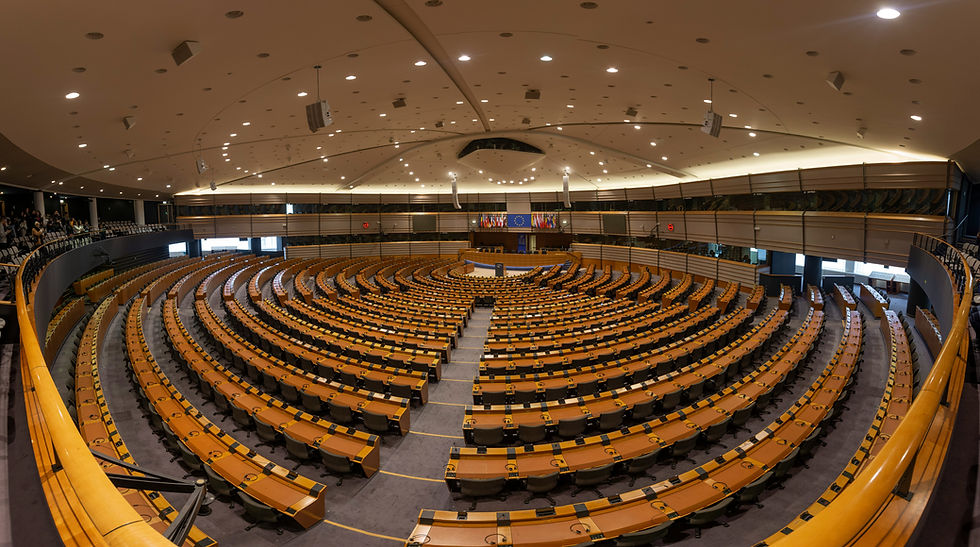The EU and the future of global trade
- Mako Muzenda

- 9. Juni 2024
- 2 Min. Lesezeit


The global trade landscape is facing a myriad of challenges. Rising geopolitical tensions between major powers, the effects of climate change, backlash against globalisation, and the struggle to revitalize the World Trade Organization (WTO) all have an impact on international trade systems. However, amid these challenges also lies opportunity. Regional blocs such as the European Union (EU) find themselves in a unique position to influence the future of global trade agreements.
The EU's experience with regional blocs offers valuable insights. Composed of 27 countries and covering a landmass bigger than continental America, the EU’s GDP is valued at $19.35 trillion, making up one sixth of the world economy. Apart from the Eurozone and Schengen Borders Agreement, the EU also has a single market policy. Created in 1993, the single market means that EU citizens can live and work across the EU. The single market also guarantees free movement of goods, services and capital, boosting trade, economic growth and integration amongst member states. The successes of the single market and Eurozone put the EU in a position they can leverage in future trade deals, approaching negotiations as a single bloc with a unified vision.
However, the EU does not exist in isolation from other countries and regions. Addressing challenges of global trade requires more than regional integration. Launched in December 2021, The Global Gateway is the EU’s initiative to invest in sustainable infrastructure projects across the world, especially in Africa. By mobilising and investing up to €300 billion over a period of seven years in digital, energy, transport, health, education and research systems, the EU aims to support infrastructure development that benefits local economies and the progress of the Sustainable Development Goals. The organisation also hopes to boost global networks and foster connectivity between the EU and the world – a connectivity that will hopefully translate into an increase in the flow of goods, services, ideas and people. As a long-term project, the benefits of the Global Gateway are not always immediate. However, the initiative currently supports five ongoing regional initiatives in Asia, Africa and South America, and country initiatives in Eastern Europe, the Balkans, Latin America, Asia and Africa.
As voting ends for the election of Members of Parliament for the European Parliament, parliamentary elections, the EU's positioning in terms of global trade is potentially at stake. With concerns of a right-wing surge across Europe and anti-global sentiments, the EU and global trade systems may face even more challenges in the future.
Photo by Kurt Cotoaga on Unsplash






Comments